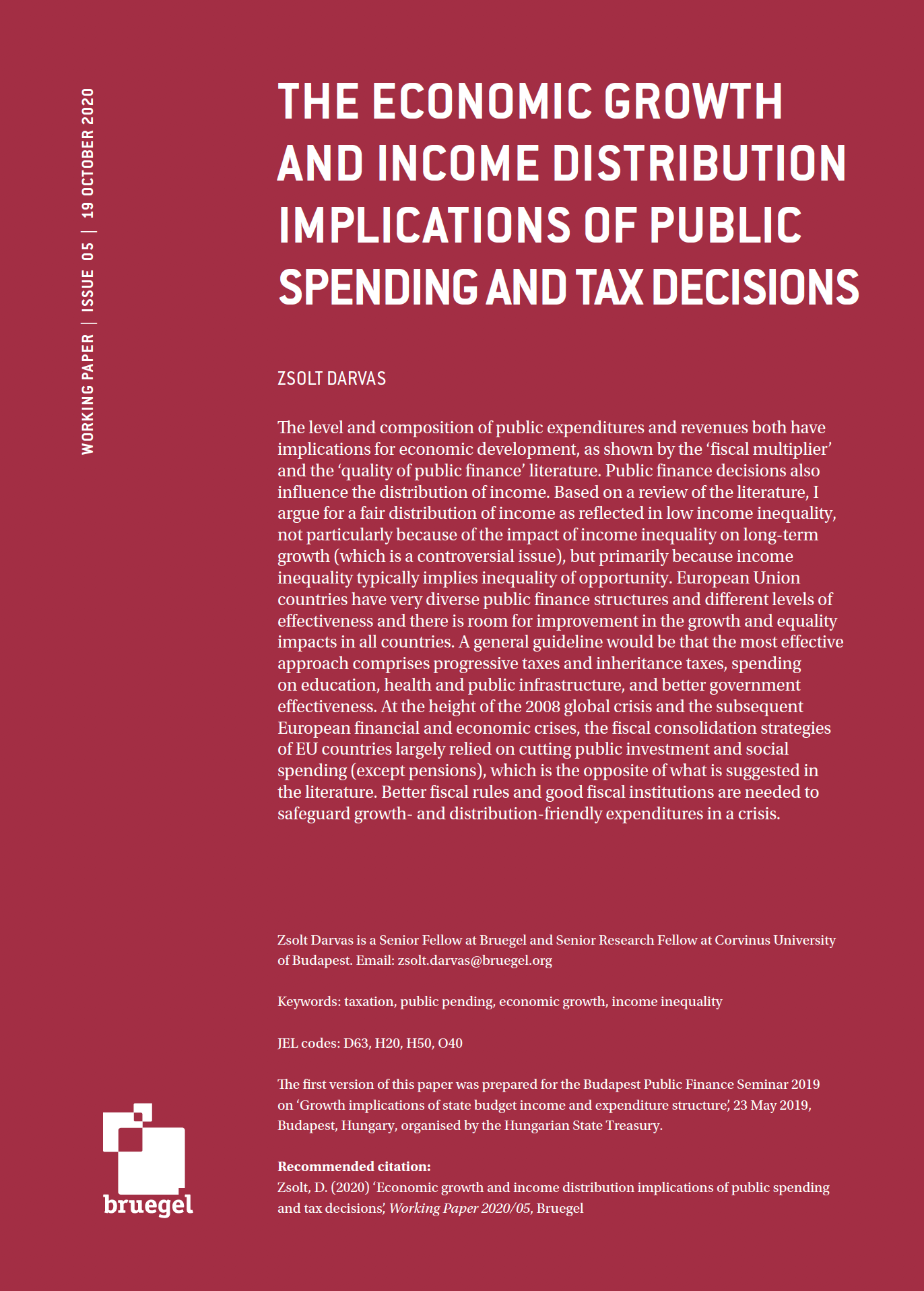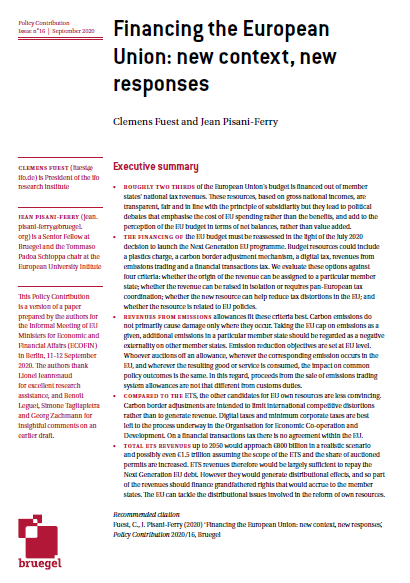Past Event

Shifting taxes in order to achieve green goals
How could shifting the tax burden from labour to pollution and resources help the EU reach its climate goals?
Past Event

How could shifting the tax burden from labour to pollution and resources help the EU reach its climate goals?
Policy Contribution


The digital transition should be managed – and taxed – alongside other societal transitions, but any tax on companies that replace employees with automated systems should be targeted and carefully designed to not stifle innovation.
Blog Post

International corporate tax reform is coming closer if countries can set aside their differences and work for progress rather than the perfect deal.
Podcast
How will a global corporate tax affect the modern economy?
Podcast
'One of the obvious measures Europe could do in order to fill public coffers is to make sure that everybody pays fairly what they are supposed to pay, rather than general tax increases.'
Working Paper

European Union countries can reduce inequality of opportunity through public spending and tax decisions. Broadly, the most effective approach includes progressive taxes and inheritance taxes, spending on education, health and public infrastructure, and better government effectiveness. Better fiscal rules and institutions also increase resilience against crises.
Policy Contribution

With the European Union for the first time taking on debt to help finance the economic recovery from the coronavirus, new resources are needed to fund the EU budget. Various ideas have been floated – including a digital tax and a financial transactions tax – but the most appropriate new resource would be revenues from the EU emissions trading system, which could provide enough funding to repay the EU's coronavirus borrowing.
Past Event

Third day of Bruegel Annual Meetings.
Past Event

Tadeusz Kościński, the Minister of Finance of Poland, talked about taxation policy in the EU.
Blog Post

Competition policy aims to ensure that market practices and strategies do not reduce consumer welfare. Industrial policy, meanwhile, aims at securing framework conditions that are favourable to industrial competitiveness, and deals with (sector-specific) production rules as well as the direction of public funds and tax measures. But, how should competition policy and industrial policy interact? Is industrial policy contradicting the aims of competition policy by promoting specific industrial interests?
Past Event

Due to a previously unannounced air traffic controllers strike in Belgium, the Prime Minister Morawiecki is unable to land in time for the event. We apologise for any inconvenience.
Blog Post

Tax avoidance and evasion harm the public coffers, and increase inequality and poverty. This post summarises the recent debate on several aspects of the issue: the update of the European blacklist of tax havens and the related recent report from Oxfam, a call for reform of international taxation by the IMF, and the request for IRS reform by US democratic senators.